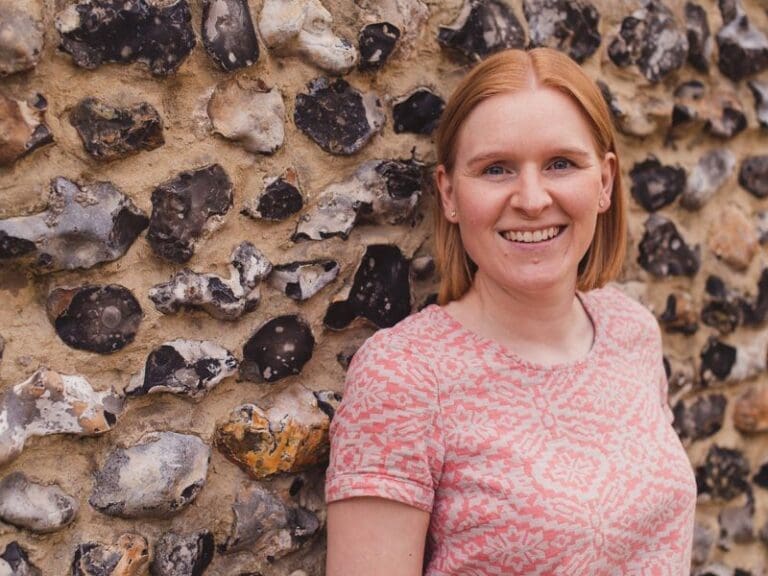There are jobs that blur the lines, roles that find a way to position themselves between areas that, where not immediately connected, could benefit from a bit of contamination.
This is easily the case for many roles within Deep Tech, where it is important to be able to translate technical aspects into something easier to understand and digest for different audiences, including the world of business.
This is a challenge that Jason Delabays, Blockchain Ecosystem Lead at Zama, faces daily as he bridges the gap between a very dynamic sector and potential users and buyers looking to keep up. Writing for ‘My Career as,’ he reveals challenges and opportunities from his own experience.
Jason Delabays is a Blockchain Ecosystem Lead at Zama.
Jason is a blockchain and decentralized finance specialist with a focus on Fully Homomorphic Encryption (FHE). As Ecosystem Lead at Zama, he works on developing use cases for FHE to address privacy challenges in on-chain corporate finance, DeFi, and state-level blockchain applications. His role involves building connections across the blockchain ecosystem to drive adoption of FHE-powered solutions, enabling innovations like confidential stablecoins, private payroll systems, and encrypted governance processes. Jason is also a skilled communicator, known for breaking down complex cryptographic concepts into accessible ideas. He is passionate about educating others on the transformative potential of FHE and blockchain technologies for industries and governments alike.
Before joining Zama, Jason spent five years in tech consulting, where he launched and grew a blockchain-focused business.
My name is Jason, and I work as an Ecosystem Lead at Zama, a company building cryptographic infrastructure.
My job is to build bridges between our technology and the outside world, helping businesses understand how our tools can bring value, especially through privacy. It’s a mix of partnerships, education, and strategic positioning.
I studied financial markets and later did a Master’s in Management at a French business school. I first entered the blockchain space in 2020 out of pure passion, during the Covid period. I started learning about blockchain and cryptocurrencies on Twitter, I was fascinated by the possibilities and eventually quit my previous job to dive into this world; giving talks, writing, and launching a startup in blockchain infrastructure (which didn’t succeed, but still taught me a lot). During that time, I met Rand, Zama’s co-founder, and that’s how I joined the company.
Those were some of the few key moments that shaped my journey: discovering crypto during the pandemic, launching a startup, and then joining Zama. These experiences gave me a strong understanding of both the technical and business sides of the ecosystem, and helped me adapt to a new environment. Working in a tech startup means staying constantly updated. Trends move fast; one year it’s DeFi, the next it’s real-world assets (RWAs) and then who knows. When you work in this kind of reality you need to be able to understand deep technical topics, but also be able to explain them in simple terms to people who might not have the same kind of background as you do. You have to sit between engineers and business people, and speak both languages fluently.
In a startup everything moves faster and on different levels, and one mistake I’ve made is chasing short-term hype. It’s easy to get distracted by the latest crypto narrative, but what matters most is identifying long-term use cases that will still matter in five years. Focus beats FOMO. A typical working day for me is all about meeting potential partners, helping the Business Development team identify key use cases, and shaping solutions with them. Sometimes, it’s like being a “solutions engineer.” Another part of my job is to make sure that engineers and researchers, who don’t always have time for outreach, can still benefit from market feedback and trends.
I consider myself very lucky as I also have the opportunity to ‘educate’ other people to the different aspects of blockchain and web3, travelling to crypto conferences around the world to represent my company, speaking on panels, hosting private events, and sharing what we’re doing with the broader ecosystem.
These platforms are crucial to explain how introducing privacy on the blockchain fixes a major problem. We’ve spent 15 years building public-by-default systems that lost something crucial: secrecy. In the traditional world, confidentiality is expected. On-chain, everything is public. That was a side effect of decentralization, not a feature. Now we have tools like Fully Homomorphic Encryption (FHE) to fix that and rebuild privacy into public infrastructure, however the technology is still not as understood and widespread as it could and should be, and I love to have the chance to go out there and talk about it.
Like many information-based roles, I think that my job is going to evolve with AI. Tools like ChatGPT are essential for staying updated, automating research, and monitoring social media. Learning how to use these tools is not optional anymore, it’s a must. That’s why, to anyone looking to explore this kind of layered profession combining technical knowledge, business mind-set and communication skills, I’d suggest to always be extremely curious. Don’t just read, do. Use crypto apps, experiment, invest small amounts, try things. It’s by doing that you really learn, and from there you can build real relationships and grow your network. Without action, networking is shallow.
There are many resources out there that I would advise to look into, from ‘studying’ online by following creators on YouTube, blogs and Twitter.
Personally, I like WhiteboardCrypto, a channel explaining crypto concepts simply, and I follow leading thinkers such as Balaji Srinivasan on the future of tech and society, and Vitalik Buterin.
Reading is great, but usually not enough. If you are really interested in crypto, try everything yourself as much as you can; theory can only take you so far in a dynamic space like this. You could even try to experiment with LLM tools like ChatGPT to learn faster. And go to industry events as much as possible. Conferences and trade events are the best place to meet people and speak with them, ask questions; you can network with experts as well as others just starting out like you, which is an invaluable experience.
And don’t be afraid to share your opinion! This is still such a new and developing sector, open to insights and ideas. I personally find it extremely helpful to write about specific topics – like this recent blog about confidential stablecoins – or trends and news that inspire me.
You can connect with me on Twitter/X or LinkedIn if you have any questions or just want to talk about crypto, privacy, or building in this space.








